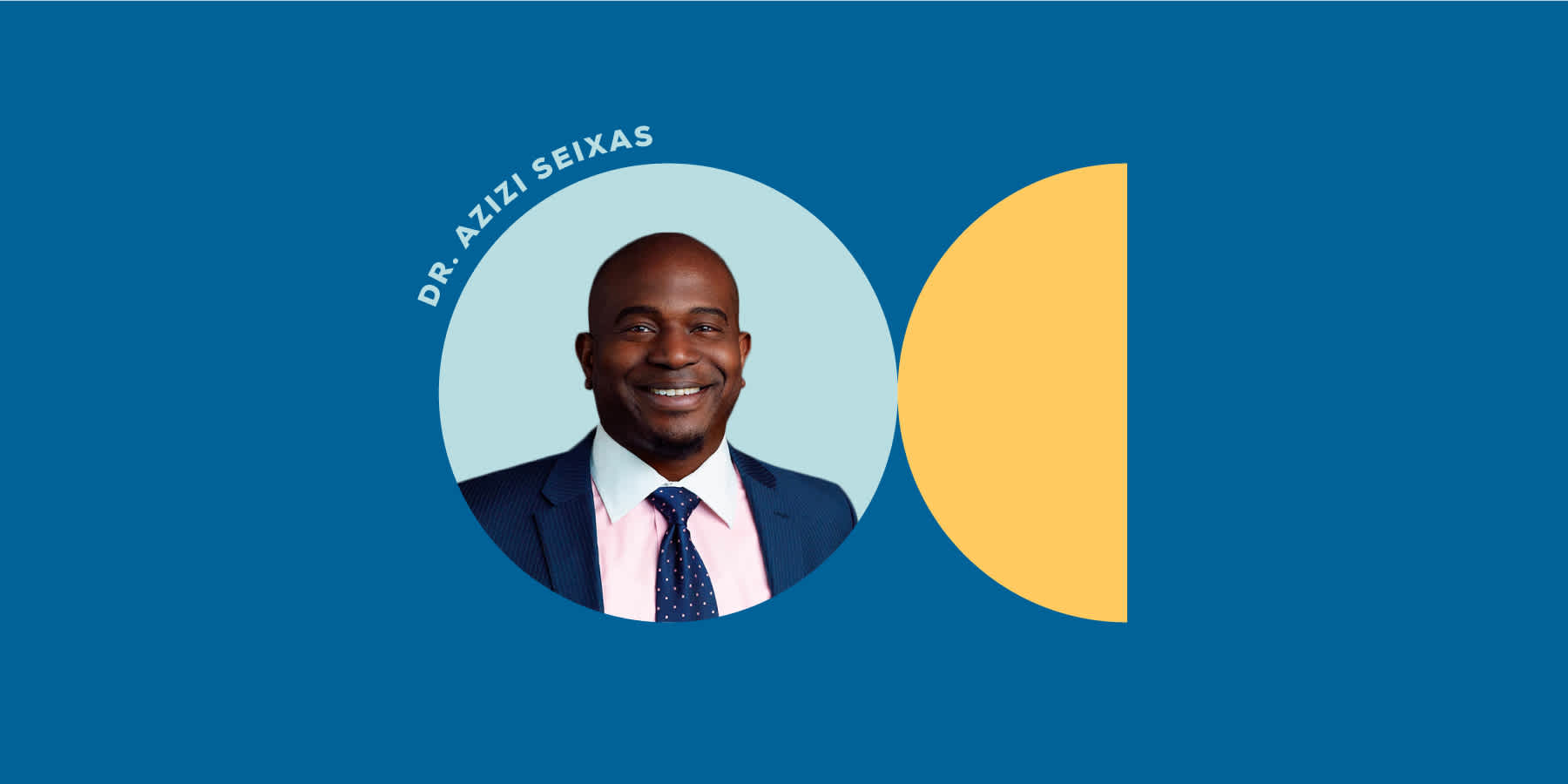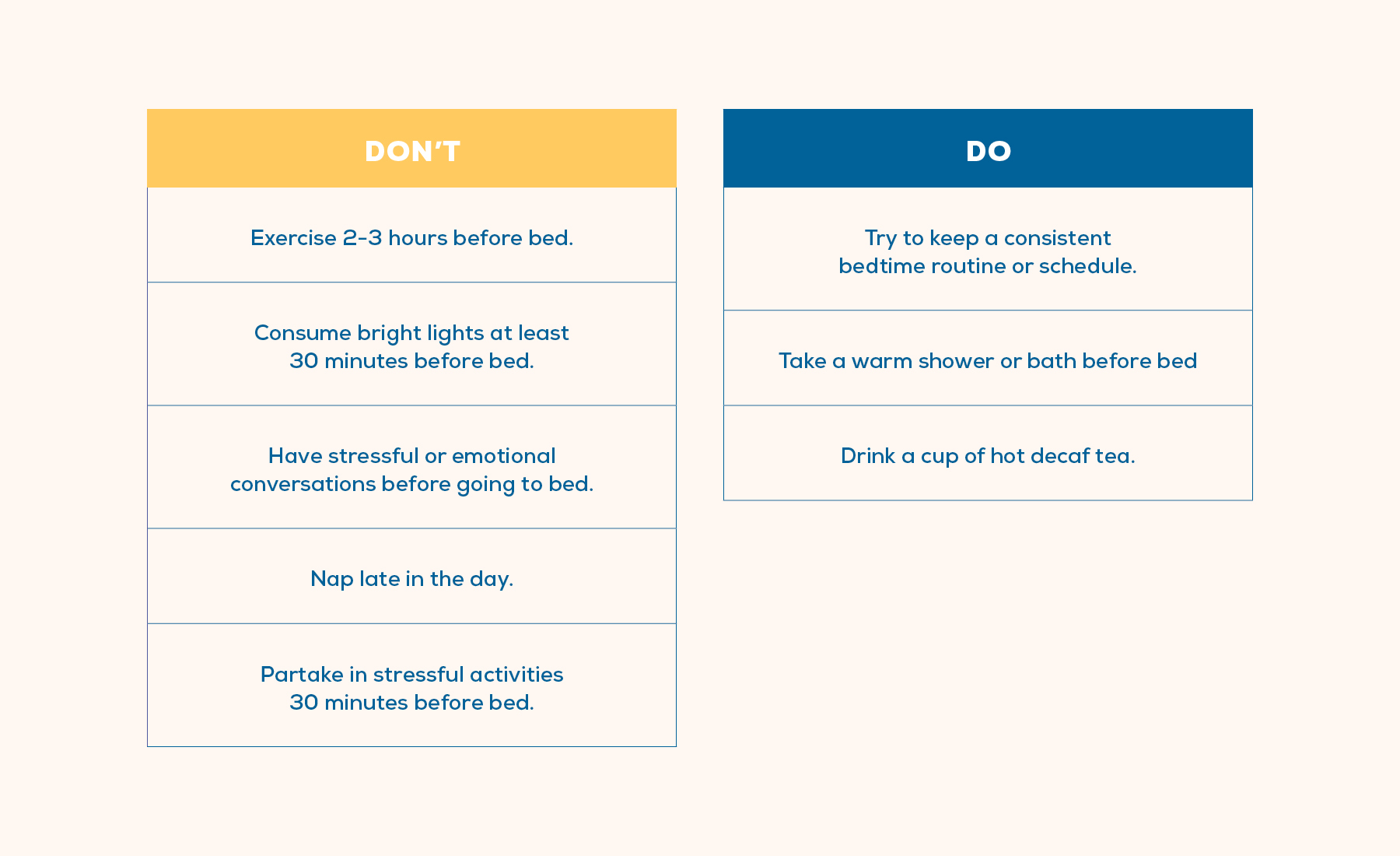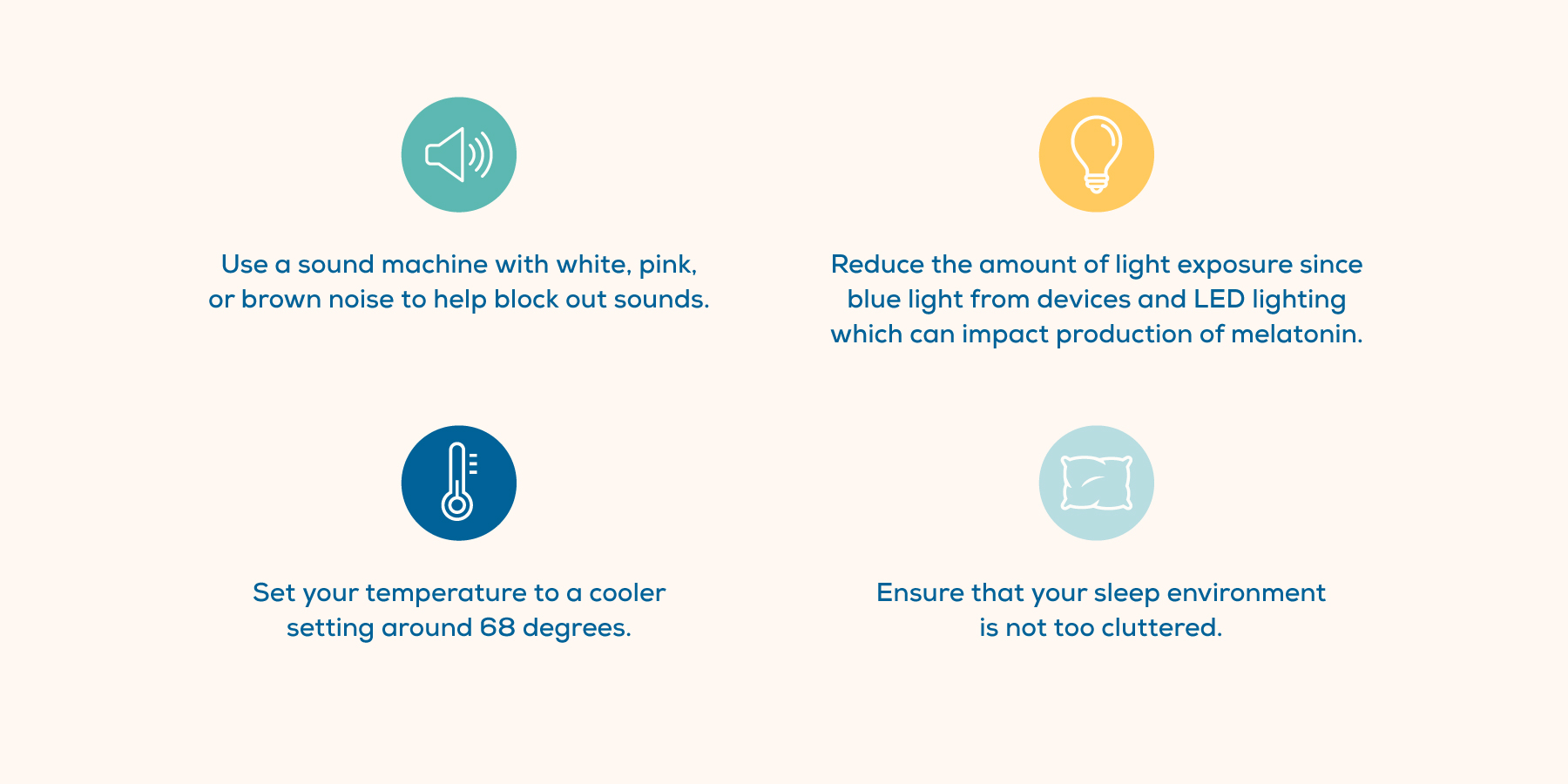
World Sleep Day: How does getting a good night’s rest factor into your health?
Dr. Azizi Seixas is a sleep expert, researcher, innovator, and Director of The Media Innovation Lab at University of Miami Miller School of Medicine, Department of Psychiatry and Behavioral Sciences. In addition to studying the impact of sleep on cardiovascular disease, mental, and brain health, his research focuses on behavioral, psychosocial and environmental causes of chronic diseases, and developing precise and personalized health and wellness solutions. He is considered a national and global innovator and thought leader in digital health technology. In 2020, Dr. Seixas was chosen by Cell Press as one of a hundred most inspiring Black scientists in America.
Table of contents
- So how much sleep do we really need?
- In what ways is sleep essential for health?
- Can you speak more around the link between sleep and heart disease?
- What are signs of excessive sleepiness?
- What causes sleep problems?
- What is something everyone can do tonight for a better night’s sleep?
- Are you mainly a team side sleeper, back sleeper, or stomach sleeper? And is one better for your health than the others?
- Related content
If you’re someone who tends to hit snooze a few times each morning before finally parting with your bed, there’s some good news: Doing so on March 18 just means you’re properly doing your part to celebrate World Sleep Day. (You’re welcome.)
The annual and globally recognized event is hosted by the World Sleep Society as a way to bring attention to the importance of getting healthy sleep, the efforts, prevention, and management of sleep disorders, and the impact of sleep on our overall health.
While it’s no secret that getting a good night’s rest makes for a much easier day — and calls for less coffee — the way in which health and wellness are directly influenced by our sleeping habits may be more surprising. That’s why we’ve asked Dr. Azizi Seixas to break down how sleep is essential for overall health, as well as some tips and tricks to get a more restful sleep.
Here’s what he had to say:
So how much sleep do we really need?
Individuals who sleep 7-9 hours on average per night receive the most health benefits, as compared to those who get less than 7 or more than 9 hours. These individuals generally report better health, better cognitive performance, report greater mental health, and have lower rates of mortality and morbidity compared to those who sleep less than 7 hours and greater than 9 hours. Population-based studies show that individuals who sleep less than 7 hours and greater than 9 hours, generally die at younger ages and have a greater burden of chronic diseases (like hypertension diabetes, high cholesterol, dementia) and earlier in life than individuals who sleep 7-9 hours on average.
In what ways is sleep essential for health?
Sleep is both a primordial and biological imperative, as all biological functioning emanates from sleep. The functioning of all our biological systems — organs, tissues, and vessels — all rely on sleep because it maintains biological balance and normalizes all key biological environments and processes.
In fact, we cannot exist without sleep; our bodies will stop functioning without adequate sleep. The lack of sleep diminishes the basic biological energy needed to survive and helps to conserve energy. Sleep serves the wellness factory for one of the most important organs: the brain.[1] Sleep protects the brain, cleans it, and rejuvenates it daily. Outside of the brain, sleep is important for overall health, and is responsible for heart health, health of the endocrine system (hormones), human movement, reproductive system, and many more.[2] The body uses sleep to restore and repair itself.
Can you speak more around the link between sleep and heart disease?
Some of the strongest evidence for the harmful effects of poor sleep is in its impact on heart health. Individuals who have poor sleep (1. too little and too much sleep, less than 7 and greater than 9, 2. poor sleep quality not feeling rested after sleep, 3. people who suffer from a sleep disorder like insomnia, sleep apnea or narcolepsy, 4. people who sleep at irregular times like shift workers, and 5. people who suffer from a circadian disorder) are at greater risk for several 1) heart disease risk factors: hypertension, diabetes, obesity and high waist-to-hip ratio, and high cholesterol; and 2) heart diseases and events: heart attacks, stroke, coronary heart disease, and heart failure.[3]
What are signs of excessive sleepiness?
The primary symptom is if the person feels tired consistently and is falling asleep during the day even after they have slept. This can result in excessive napping, difficulty waking up after sleep, feeling confused, or having brain fog, especially if a medical issue is not the source of these symptoms. But there are some other signs that people may not readily associate with excessive sleepiness such as: slower reaction time, irritable behavior, memory problems, difficulty processing new information and learning new things, trouble concentrating and staying alert, poor decision making, poor and unpredictable mood, and more.
What causes sleep problems?
There are several factors that can cause sleep problems. The first one to rule out is an undiagnosed and untreated sleep disorder, like insomnia, sleep apnea, narcolepsy, restless leg syndrome, or circadian rhythm disorder. If it is determined that the sleep problem is not related to a sleep disorder then it may be due to a medical issue, physical (diseases and pain), or mental (anxiety and depression). Additionally, some medications can cause disruptions in sleep. But more common are the adverse effects emotional factors have on sleep. General emotional distress, stress, anxiety, depression, and trauma can all disrupt sleep.
What is something everyone can do tonight for a better night’s sleep?
What you do before you hit the pillow plays a crucial role in your ability to relax and get some shut-eye. Here are some tips from Dr. Seixas on what to avoid and what to do, instead:

Your environment also plays a role in your ability to get a restful sleep. Here are some suggestions to make your space a more conducive sanctuary for sleep:

Are you mainly a team side sleeper, back sleeper, or stomach sleeper? And is one better for your health than the others?
No teams. I personally sleep on my back, but I know others who are side or stomach sleepers and those who fluctuate between the three types. The key is to choose a position to support the spine and hips. Evidence shows that sleep on your back and side promotes healthy spine alignment during sleep, as compared to sleeping on your stomach.[4] However, finding the right position depends on the person, and individuals should not force themselves into a sleeping position that would disrupt their sleep. So if sleeping on the stomach works best, then they should. They should augment this with proper bedding to ensure they do not put pressure on their spine and hips.
Surveys show that approximately 60% of people sleep on their sides, most of whom are men. Side sleeping may be better as we age because our spine loses flexibility, and as such, side sleeping offers the best support for aging spines. Individuals who sleep on their side are less likely to have pain (especially back pain), heartburn or acid reflux, snore, and seem to be best during pregnancy, especially with bent knees.[5,6]
Side sleeping — especially on the left side — is linked with healthy blood flow to the heart, kidneys, fetus, and uterus.[7] Individuals with shoulder problems and pain may opt-out of side sleeping. Sleeping on your back helps with neck pain, lumbar spinal pain, and nasal congestion/stuffy nose. People who are obese and sleep on their back can have spinal damage over time.
Related content
Tips on how to fix your sleep schedule
How to Create and Maintain a Sleep Routine
References
1. D’Souza JM, D’Souza DH (2010) Sleeping position and the functioning of the brain: is there a link? Med Hypotheses 75:408
2. Jones AY (2004) Body position change and its effect on hemodynamic and metabolic status. Heart Lung 33:281–290
3. Palermo P, Cattadori G, Bussotti M, Apostolo A, Contini M, Agostoni P (2005) Lateral decubitus position generates discomfort and worsens lung function in chronic heart failure. Chest 128:1511–1516
4. Dunkell S (1977) Sleep positions: the night language of the body. Heinemann, London
5. Khoury RM, Camacho-Lobato L, Katz PO, Castell DO (1999) Influence of spontaneous sleep positions on nighttime recumbent reflux in patients with gastroesophageal reflux disease. Am J Gastroenterol 94:2069–2073
6. Farine D, Seaward PG (2007) When it comes to pregnant women sleeping, is left right? J Obstet Gynaecol Can 29:841–842
7. Johnson HM, Swan TH, Wiegand AB (1930) In what positions do healthy people sleep? J Am Med Assoc 94:2058–2062